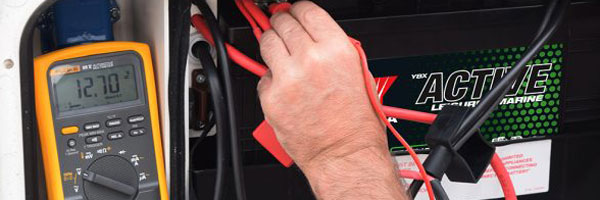How to Get The Best From Your Leisure Battery
5 July 2021 | Tom

As with any battery, the secret to getting the very best out of your leisure battery and extending it's service life lies in maintaining and charging it properly.
Charging Advice
You should always keep your leisure battery fully charged at all times; if the charge level in your battery drops too low you risk damaging the battery and causing permanent damage.
All batteries lose their charge slowly with time particularly if they are not used for extended periods of time and by their very nature this is common in camper vans and motorhomes. Alarms, tracking systems and other electrical devices will also draw power when your vehicles is left for any period of time.
We suggest using a maintenance charger at all times when your vehicle is not in use - these are designed to be left connected at all times without risk of overcharging the battery and will charge, monitor and maintain your battery for extended periods of storage. This will ensure that your battery is kept at optimum voltage and that your security systems remain fully functional.
You should recharge your battery as soon as it drops below 50% power and never allow it to run totally flat as this risks causing damage to the battery and significantly reducing it's service life.
If you have a batter monitor display or use a multimeter, a reading of around 12.4V indicates 50% charge level and anything around 12V or below would indicate that the battery is totally flat.
Maintenance Advice
As explained above, Number 1 tip is always keep your battery fully charged.
Ideally you should check your battery regularly during any extended periods of storage and definitely before travelling; make sure that your battery is safely secured and that the terminals are securely connected as any vibrations or poor connections can cause damage to your battery. Ensure that the terminals and connectors are clean and smear them with petroleum jelly regularly.
As well as a visual check of the battery's condition, check for unusual smells - a sulphurous rotten egg smell or excessive heat can be an indication that the battery is being over-charged
If the battery has a vent tube, check that this is fitted correctly.
All batteries will deteriorate with time - their internal chemical reactions inevitably cause a loss of performance over time. This will normally mean a reduction in capacity compared to a new battery and you will find that you are charging the battery more often.
In time the battery will have to be replaced but good maintenance and charging regimes will ensure you get the best out of your battery and extend it's service life.

